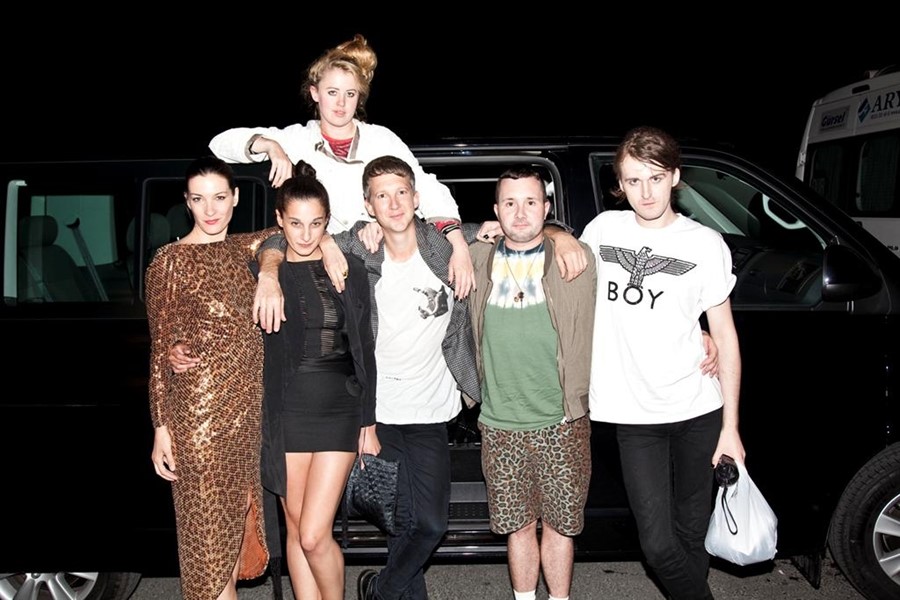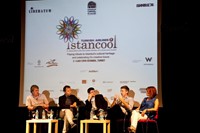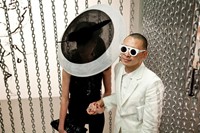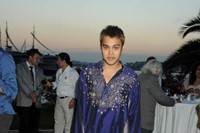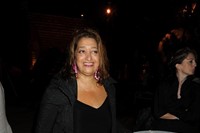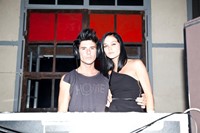Turkish Airlines' Istancool festival by Liberatum landed in Istanbul from July 2-4. AnOther Magazine was the festival's creative partner, and was on hand to record all the best bits as the event unfolded...
Turkish Airlines' Istancool festival by Liberatum landed in Istanbul from July 2-4. AnOther Magazine was the festival's creative partner, and was on hand to record all the best bits as the event unfolded...
It is no ordinary festival that opens with a dinner in honour of Zaha Hadid and ends with a visit to the Ecumenical Patriachate. For three days the magical city of Istanbul, a historic cultural capital and legendary connector of two continents, became the site of a meeting of minds from across the globe brought together for Liberatum’s Istancool festival. On the first day Sir V.S. Naipaul in conversation with Franca Sozzani said “Very few imaginations have that incandescent quality that can light up a whole world for you” and from there on in it became apparent that we were in such company.
On day one Jefferson Hack joined FT.com editor Robert Shrimsley, Wallpaper* editor-in-chief Tony Chambers, and Time Out founder Tony Elliott on stage at The Seed to discuss the future of digital media. “It’s hard to have a sense of where we’re going until we reach a settled state. I think we’re in a wild west situation,” said Shrimsley.
That evening guests were treated to a splendid gala dinner followed by a yacht party along the Bosphorus. Jefferson took control of the decks while Terence Koh, dressed entirely in white, re-enacted the “flying” scene from the Titanic at the bow of the boat. The merry band then returned to the W hotel, where the party continued into the early hours.
Day two took place at Istanbul’s leading gallery of modern art, Istanbul Modern, where the day commenced with a discussion between Hanif Kureishi, Lady Nadira Naipaul and Elif Shafak about how their childhoods shaped their literary journeys as writers of Muslim origin. The Oscar-nominated British composer Michael Nyman followed, introducing the audience to his lesser-known photography and film work.
After lunch, Kim Jones met with local fashion students to do a portfolio workshop. This was followed by a discussion between fashion royalty Philip Treacy and Daphne Guinness, immaculately dressed and crowned by a black gauze wimple designed for her by Treacy to discuss hat making and fashion. “The hat is only half of it”, said Philip, “it’s the woman. Daphne is a designers’ dream”.
Gore Vidal’s presence had already made its mark on the festival, and when it came to his conversation with leading Turkish journalist Leyla Umar, everyone was excited and terrified in equal measure. “The great Pan is dead!” Vidal declared, speaking of the demise of America. Not one to mince his words, Vidal spoke of Benjamin Franklin’s prediction of the end of the republic: “The problem will be the loss of our liberties which we have been undergoing for the last ten years. Crazy wars about nothing that people can’t even begin to understand, much less absolve […] We are a killer republic in the name of democracy.” Inviting questions from the silent audience, he said, “Let me hear your dulcet voices.”
That evening, AnOther Magazine hosted a dinner at the splendid Ottoman-era Topkapi Palace, followed by an after party at Otto Santral, a former electrical factory where Waris Ahluwalia held court on the dance floor.
The final day of the festival at the Pera Museum saw director Stephen Frears discuss his career and the wonders of independent filmmaking. In 1990, Frear’s film Grifters was nominated for four Oscars, and won the best independent film award. “I went there full of enthusiasm,” he said, “and came back a wiser and sadder man. I remember saying, ‘I see that the prize for the best independent film award is giving up your independence.’” But there is always hope, he added. “The intelligent don’t go away – they just hibernate.”
It was the last night of the festival and guests gathered outside the Kempinski Hotel for a sunset cruise down the Bosphorus. The boat moored at Princess Island and guests disembarked to be met by horse drawn carriages carrying them up to the Patriarchal Church of St George. As the assembled guests sat in the small church in hushed silence, the Patriarch delivered a speech more humanitarian than aligned with any religious belief system. It was an inspiring moment. As we rose to depart the Patriarch broke the silence. Looking over at Gareth Pugh he said, “I like your hair.” “Did he just say what I thought he did,” I asked Gareth. “I think so,” he replied.
